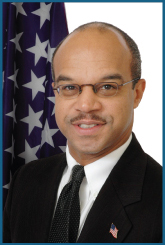A number of veto overrides have come out of the Kansas Legislature in the past few days on bills ranging from election laws to COVID-19 funding.
The GOP-controlled Legislature voted mostly along partisan lines to override Gov. Laura Kelly’s vetoes.
One that wasn’t overridden was a veto of a bill barring transgender athletes from competing in women’s sports.
On the override of the tax cut veto, Gov. Kelly issued a statement, “Senate Bill 50 is reckless, shortsighted, and jeopardizes our ability to fund education and will leave Kansans on the hook for another tax-cut that we can’t afford. It’s as if legislative leaders want to return to the days of budget crises, gutting transportation spending, and 4-day school weeks. I’ve never met a Kansan who wants that. While some may treat today’s vote as a partisan victory, I’m going to continue to fight to keep Kansas schools funded and to protect our economy.”
As reported by the Kansas Reflector website, the veto overrides have included:
COVID-19 federal funding. https://kansasreflector.com/2021/05/04/house-hits-veto-override-button-to-strip-governor-of-covid-19-funding-oversight/
The House overrode the governor’s veto of a provision putting a small group of legislators in charge of allocating $1.6 billion of federal COVID-19 funding. Formerly, the governor and a task force was in charge of this, with recommendations then going to the State Finance Council, which included the governor and legislative leaders. Under the override version, the governor is left out.
Election reform bills. https://kansasreflector.com/2021/05/03/kansas-house-overrides-governors-veto-of-two-election-reform-bills/
The House and Senate overrode the governor’s veto of two election bills. Under the bills, advance ballots applications sent to voters would have to have more information about the sponsors and declare it wasn’t sent by an official government agency. Candidates could not assist voters directly. Non-candidates could not help more than 10 advance voters, making it a misdemeanor to help an 11th voter. The courts and state administrative offices could not change deadlines for submitting ballots without the permission of the Legislature. County election offices would have to confirm registration addresses. Organizations could not provide grants to county election offices to conduct elections. Opponents claimed these are voter suppression efforts.
Tax cuts. https://kansasreflector.com/2021/05/03/kansas-republicans-restore-tax-cuts-after-both-chambers-spike-governors-veto/
Legislators overrode the veto of Senate Bill 50. The bill has tax breaks for multinational corporations, increases the standard deduction for state income tax returns and allows those with high incomes to claim a standard deduction on federal taxes while itemizing contributions or deductible expenses on their state income tax return. The state sales tax would apply to online retail sales. The governor had said the state can’t afford these tax cuts.
Critics also pointed out that the tax cuts could affect education funding, see https://kansasreflector.com/2021/05/04/senate-republicans-dismiss-kansas-budget-directors-warning-about-education-funds/.
Concealed carry age and Gadsden license plate. https://kansasreflector.com/2021/05/03/kansas-house-votes-to-override-governors-veto-of-license-plate-with-ties-to-slave-owner/
With an override of the governor’s veto of a concealed carry bill, residents 18 to 21 would now be able to carry concealed weapons in public. Firearms training, a background check and state fee would be required. It also would allow residents of other states in that age group, with licenses, to carry concealed weapons in Kansas. Critics of the bill said that teens’ brains are not yet fully developed enough for this. Legislators also overrode the veto of the “Don’t Tread on Me” Gadsden flag to be available on state license plates. According to critics, Christopher Gadsden was a major slave owner in revolutionary times, and they did not want the state to fund a license plate that would honor a slave owner.


